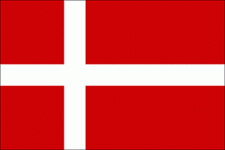
Danish language courses in Denmark were free for many years until 2018, when new fees were introduced (with an exception for refugee learners). This led to a decrease in the number of people attending and finishing the courses, as many could not afford to pay 270 EUR for each of the six modules that make up a course.
Social benefits for foreigners are limited in Denmark – you are not entitled to receive the maximum amount until you have lived in the country for nine years, and have been employed for at least two and a half years. Working migrants often have many other fees to pay (the annual renewal of a work permit, for instance, costs 600 EUR), and living expenses in Denmark are among the highest in Europe, so they have often struggled to pay for language courses in addition to these other costs. In 2021, 36% of migrants from non-Western countries were living in relative poverty (below 50% of the median national income).
In 2020, a coalition of the Social Democratic government, the Social Liberals and the left-wing parties agreed to abolish these language course fees. Since then, from the first quarter of 2020 to the second quarter of 2021, the number of self-supported enrolled students rose from 10 499 to 18 707: an increase of 78%.
Rosa Lund, Member of Parliament for the Red-Green Alliance, said: "This shows clearly that the user fee was a big obstacle for enrolling in the language courses. We have now removed that obstacle, and I'm very glad to see that it works. Language is a crucial condition for integration, and therefore access to learning must be equal for all."
Details
- Publication dates
- Geographic area
- Denmark
- Source
- Posted by
